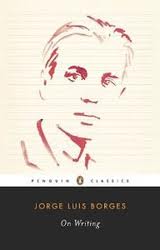When the going gets tough, the tough… go to the nearest bookstore and buy books about writing. That’s what I did a couple of weeks ago, and I bought five gems. I haven’t read them all yet, but of what I have read, I’ve received much.
How To Write a Short Story from Sparknotes, written by John Vorwald and Ethan Wolff, hit exactly the how-to note that I could hear. I didn’t get any sense of being talked down to. The advice they give is all backed up with good examples of what works, and then what works better, how it worked and why. Just flipping through right now, I came to this: “Show, Don’t Tell.” Writers hear that all the time, and I get it, but in the Sparknotes book they illustrated the difference: Example one, “Claudia was a very jealous woman.” Example two, “As soon as Paul was asleep, Claudia emptied his backpack, flipped through the contents of his wallet, and checked the call-log on his cell phone.” Nice. The writing advice was presented in such an un-intimidating way that I thought I’d like to try my hand at a short story or two, so that’s a winner book in my estimation. Not only did this book give me a little inspiration, it also had dozens of recommended short story reads. I pulled down from the attic one of my old college anthologies and have picked off eight so far: The Yellow Wallpaper by Charlotte Perkins Gilman, Araby by James Joyce, The Hunger Artist by Franz Kafka, The Cathedral by Raymond Carver, A Good Man Is Hard To Find by Flannery O’Conner, A Very Old Man With Enormous Wings by Gabriel Marquez, Hills Like White Elephants by Ernest Hemingway, and A & P by John Updike. Wow! What treasures. I’m thrilled to have stumbled onto them. I hadn’t been thinking anything at all about short stories. I had been in the bookstore, in the reference aisle, saw the How To book, and the next thing I know, I’m not only thinking about my own short story, but I’m now hooked on them. Isn’t that something? It is for me.
The Breakout Novelist: Craft And Strategies For Career Fiction Writers by Donald Maass. Donald Maass is a big deal literary agent in New York. He represents hundreds of well-known authors (not well-known to me, but they apparently sell in the millions.) Anyway, Maass has, a little bit, been through the wringer with crappy submissions, so he’s got a book here that lays it out in very straight forward terms. His book is actually spiral bound, like a cookbook. Oh yeah, writing a novel is as simple as following a recipe: buy the best characters you can find, throw them in a plot pot, add generous portions of scene and theme, let that simmer while you prepare a few subplot side dishes, when the main dish is almost finished cooking, accidentally/on purpose knock the pot off the stove, panic, burn yourself in a frantic effort to shovel the contents back into the pot, then burn the whole mess when trying to reheat it, transfer the salvageable concoction into a new pot and hide the scalded one in the basement where it can soak until it doesn’t scare you anymore, return to the kitchen, plate the meal with a flourish of creme fraiche, minced basil, and twist of lime. Voila! Your best seller is served.
Don’t get me wrong, what Mr. Maass has to say is quite valuable and he was thorough, so in the end, I felt that his book was absolutely worth reading, highlighting, and bookmarking. But I’ll give you an example of what sets my teeth on edge when I’m looking for answers from experts who are clearly jaded. In Chapter Two he covers escalating tension in a plot. The chapter is titled “Stakes.”
He writes, “Low stakes are easy to diagnose in the work of beginning novelists. In one-on-one meetings at writers’ conferences, I can usually stop a story pitch dead in its tracks by interjecting the following: Hold on, your protagonist wants to [insert goal here] but let me ask you, if he is not successful so what? What follows that question is generally a stare of disbelief. So what? Well, if he didn’t, then…then…”
Oh my god, what a putz. His point is lost when he seems to delight in seeing his subject squirm. He clearly enjoys his gotcha question. I can only imagine the pore sucker who wasn’t ready for that one. Hesitate and be killed, think fast or get lost. Peeuuu! But Maass has numbers on his side, lots of clients and lots of sales. Like it or not, he’s what’s out there. Take what you need and leave the rest.
Next I’ll be reading Jorge Luis Borges’ book, On Writing. Section One is titled “Becoming A Man Of Letters” Chapter One is title “Ultra Manifesto.” Paragraph one reads, “Two aesthetics exist: the passive aesthetic of mirrors and the active aesthetic of prisms. Guided by the former, art turns into a copy of the environment’s objectivity or the individual’s psychic history. Guided by the latter, art is redeemed, makes the world into its instrument, and forges—beyond spatial and temporal prisons—a personal vision.”
Ahhh, manna from heaven.
My other two writing craft books are Ray Bradbury’s Zen in the Art of Writing: Releasing the Creative Genius Within You, and clean, well-lighted sentences: A Guide to Avoiding the Most Common Errors in Grammar and Punctuation, by Janis Bell. Her title intentionally has the first part in lower case letters and the sub-title capitalized.
So I’ve got a ton of good writing to get to, so I better wrap this up. Have a great week, and I’ll post again next Friday.
